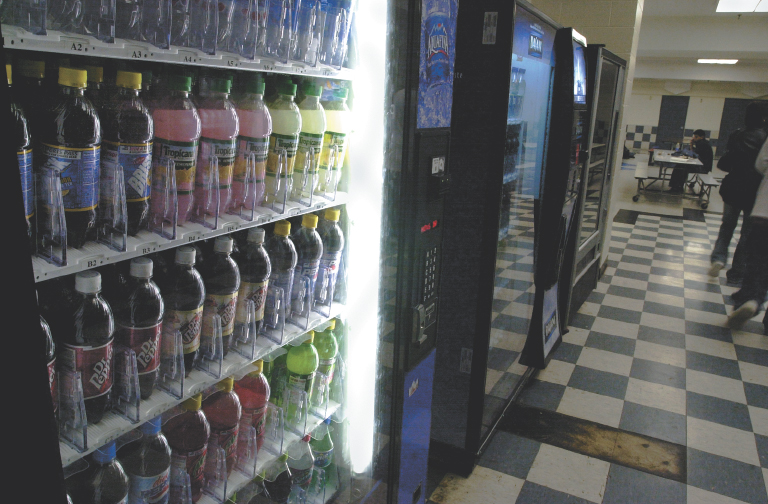Exploring an Issue: What's Your Position?
Life often presents opportunities to get involved with community, political, and social issues and to take particular positions. For instance, what should we do about the problem of childhood and adult obesity? Should we deal with this problem as a society, or is it a matter that should be left to individuals? What steps might a community take to address this public health crisis?
Let’s assume that you and some neighbors decide to petition the school board to place on its next agenda a decision to ban soft-drink vending machines in the public schools. In response to your request, you are granted permission to speak at the next school board meeting. Your team collaborates to identify the questions that you need to explore:

- What is the current obesity rate of adults in this community?
- What is the current obesity rate of school-age children in this community, and how does it compare to the rate twenty years ago?
- What health interventions are currently in place in schools to offset the potential for obesity?
- When were soft-drink vending machines placed in the schools?
- How much profit does each school generate by the sale of such beverages?
- How do the schools use these profits?
- Have there been any studies on the student population in the community connecting the obesity levels with other health problems such as diabetes?
You collect data using resources at your nearest library, and in your search for evidence to support your position, you discover that, according to the local health department, obesity rates for adults and children in your community are above the national average and have gone up significantly in the past twenty years. Rates of diabetes among high school students are also increasing every year. You also learn that soft-drink machines first appeared in schools within your community fifteen years ago. Other than regular physical education classes, the schools don’t have programs in place to encourage weight loss. Schools receive money from the soft-drink companies, but you cannot get a clear answer about how much money they receive or how it is being used.
The data about the health of the community and its schoolchildren are powerful. You carefully cite all of your sources, and your team believes it is ready to make its case. You assume that the school board will make an immediate decision to remove soft drink vending machines from school grounds based on what you have discovered. You cannot imagine another side to this issue, and you wonder how anyone could possibly object to removing from schools something that, in your view, clearly harms children.
Little did you know that your position would meet firm opposition during the board meeting. You were shocked to hear arguments such as these:
- Students don’t have to buy these drinks. Nobody makes them.
- Students will be unhappy if their soft drinks are taken away, which will negatively affect their academic performance.
- America is all about freedom of choice. It is morally wrong for any government agency to interfere with people’s freedom of choice, no matter what their age.
- If we allow the school board to tell children what they can and cannot drink, pretty soon they will be telling children what to think or not think.
- This proposed policy will lead to significant revenue loss for our school, and this will result in higher taxes to make up the shortfall.
- There is no evidence that it is the consumption of soft drinks that actually causes obesity. Other factors might be the problem.
- If students don’t have these drinks to purchase in school, they will sneak them in from home.